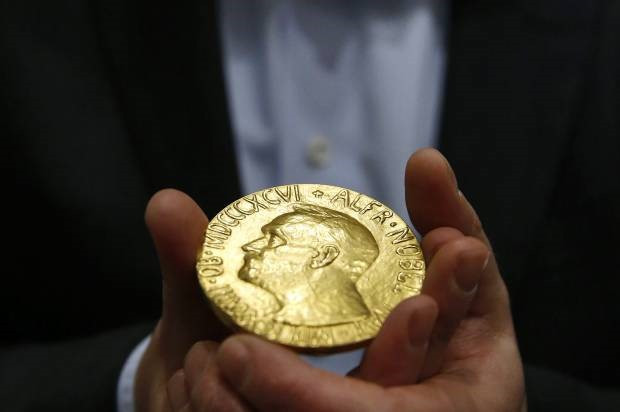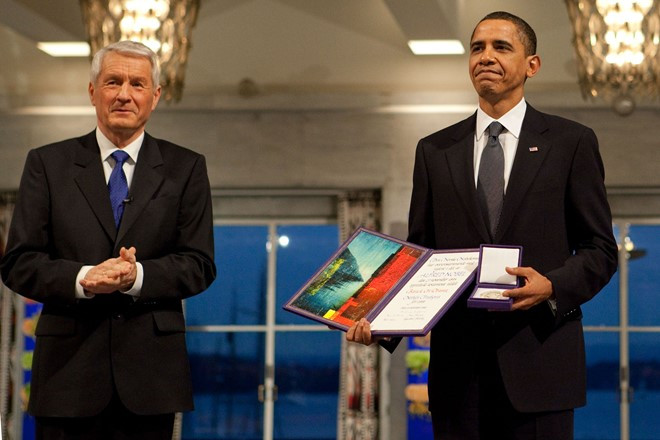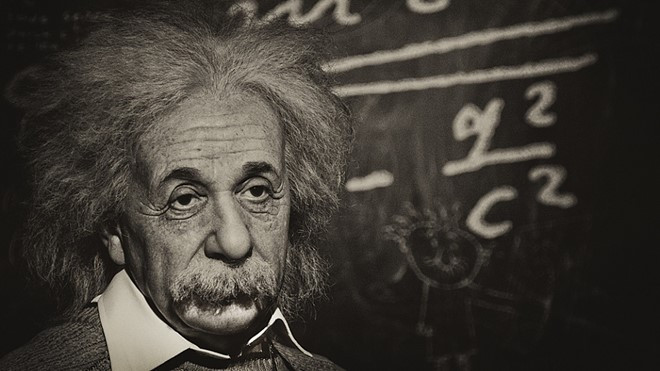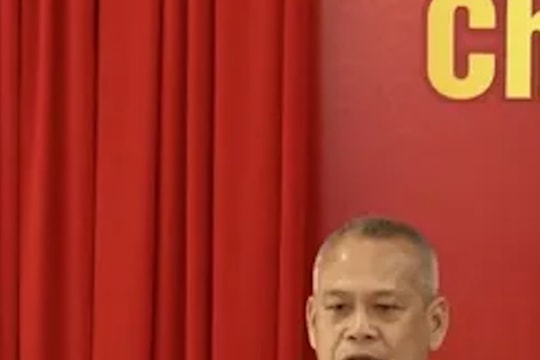4 ways Nobel Prize winners spend their prize money
Buying a car, buying a house, paying for children's education, doing charity or reinvesting in research are ways that Nobel Prize winners use the money they receive from this award.
Early on the morning of October 28, 1954, Mary Welsh Hemingway, the fourth wife of writer Ernest Hemingway, was sleeping in bed when her husband crept in and whispered, "I won." "What?" "The Swedish Prize."
The famous writer, of course, meant the Nobel Prize in Literature, but for him, the news was not very good. "I was going to tell them to go away," he said, then paused. "But the prize is worth $35,000 (about $310,000 today). With that, you can have a good time."
The Nobel Foundation, based in Stockholm, Sweden, will announce the winners of the prizes in medicine, physics, chemistry as well as economics, peace and literature starting on October 3.
Breakthrough research will be honored and leave a good name for posterity. In addition to medals and certificates, winners will receive a cash prize.
The amount of money that winners receive is at the discretion of the Nobel Foundation. Currently, the amount that comes with a Nobel Prize is more than $900,000.
Spend to enjoy
It is not really thorough to say that the prize for those who have devoted their lives to benefiting humanity is only about money. According to Phillip Sharp, an American who won the Nobel Prize in Medicine in 1993, the value of the Nobel Prize lies in the honor, but "the prize money also has a positive meaning".
 |
| The gold Nobel medal bears the image of the father of the famous Nobel Prize. Photo: AP. |
For some winners, the prize money is spent purely on enjoyment. When Sir Paul Nurse, now director of the Francis Crick Institute in the UK, won the Nobel Prize in Physiology or Medicine in 2001, he rewarded himself with a Kawasaki GPZ (later upgraded to a Triumph Bonneville).
Franco Modigliani, winner of the 1985 Nobel Prize in Economics, vowed not to overspend his prize, using the prize money to upgrade a yacht.
Richard Roberts, who received the prestigious Nobel Prize in 1993, also spent his prize money on opening a 740m2 hockey rink right on the grounds of his home.
Albert Camus, the 1957 Nobel Prize winner for Literature, bought a house in the South of France and worked there. Playwright Eugene O'Neill, the 1936 Nobel Prize winner for Literature, also built an Asian-style house in California with his prize money, where he later wrote some of his most famous plays.
When asked about the significance of receiving the Nobel Prize for Literature in 2004, Austrian novelist Elfriede Jelinek said: "Of course (it helps me) to be financially independent."
Used for pension funds
British-American economist Angus Deaton won the Nobel Prize in Economics last year for his work on consumption, poverty and welfare. Deaton also used it to examine the link between money and happiness.
"In my career, I've tried to understand the meaning of spending and saving," he said. "The one thing I still don't understand is why we do something so senseless as spending all the money we get from a windfall like that? So I choose to save, after paying a lot of taxes on it," Deaton said.
Unlike other countries, the US taxes Nobel Prizes as ordinary income. The recently retired Princeton professor put the remaining prize money into his retirement fund to be spent over the next several years.
Using Nobel Prize money to pay for daily living expenses is not uncommon.
"I had to share my prize," said John Walker, co-winner of the 1997 Nobel Prize in Chemistry. "Although it seems like a huge amount, it's not. At that time, my children were going to college. It helped me with the costs of their undergraduate and graduate education," he said.
For noble purposes
Many individuals use their bonuses for long-term, humanitarian purposes.
 |
| US President Barack Obama received the Nobel Peace Prize in 2009 for his extraordinary efforts to "strengthen international diplomacy and cooperation between peoples". Photo: whitehouse. |
For scientist Marie Curie (Nobel Prize in Physics, 1903), receiving the Nobel Prize allowed her to continue pursuing her research career. Her family was also a special case when Curie herself received the Nobel Prize twice in two fields. Her husband, daughter and son-in-law were also honored with this noble award.
Nobel Peace Prize winners have used their prize money to give back to the community. US President Barack Obama, for example, donated his 2009 prize to veterans groups, university programs and charities.
Mother Teresa (Nobel Peace Prize, 1979), Nadine Gordimer (Nobel Prize in Literature, 1991), Wole Soyinka (Nobel Prize in Literature, 1986) and many others also donated their prize money to charitable causes.
Günter Blobel (Nobel Prize in Medicine, 1999), after witnessing the bombings in Dresden, Germany, dedicated his entire prize to building a new synagogue and repairing churches in the area.
To unique purposes
Not for themselves, not for charity, some Nobel Prize winners use the prize money to achieve unique purposes. Samuel Beckett (Nobel Prize for Literature 1969), did not think much about the prize money he received. He used the money to help his friends in need.
The most notable case is that of Albert Einstein, a scientist famous for his dementia. Einstein pledged all the Nobel Prize money he was sure he would win to his wife when they divorced in 1919. Ironically, it was only two years after their divorce that the German-Jewish scientist actually won the Nobel Prize in Physics.
 |
| The great scientist Albert Einstein once pledged to give his Nobel Prize money to his wife before he officially received it. Photo: lifehack. |
The history of the Nobel Prizes has also seen a few cases of not accepting the financial award at the ceremony in Stockholm. The CEO of the Nobel Foundation, Lars Heikenstein, once mentioned that the 18-carat gold medal and diploma, personally presented by the King of Sweden, were immediately returned.
It wasn’t until the next morning that many people showed up at Heikenstein’s office to pick up their certificates and discuss how to transfer their prize money. Most people agreed to a simple bank transfer. Some wanted to pay in installments, deferring their taxes over two years. However, the entire amount had to be transferred to the winner within a year.
Andre Geim, co-winner of the 2010 Nobel Prize in Physics, said the Nobel prize money is not important to everyone. However, like other awards, "having a real gold medal is always better than having a gold-plated one."
According to Zing.vn
| RELATED NEWS |
|---|



.jpg)




